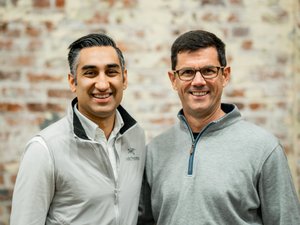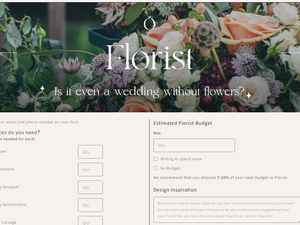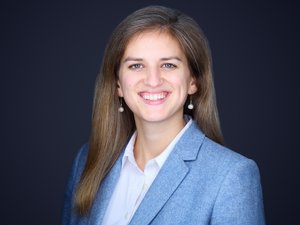
Two months before graduating from Davidson College, Shea Parikh asked himself a question that would eventually lead to the creation of Jam, an interest-based connection engine that facilitates greater employee engagement in the workplace.
“In a community where there’s a common thread that runs through everyone [like Davidson College], why don’t more conversations happen organically that help form new, meaningful relationships? By meaningful, I don’t necessarily mean becoming best friends, but why aren’t more conversations happening where people can learn who someone is and what makes them tick?” Parikh recalls.
Parikh figured there had to be others who felt this way. So he created a solution and launched it at Davidson College. The results were convincing. Within two months, about 25 percent of the college was using it.
“Davidson’s a small school so word definitely travels fast. But that’s a testament to the fact that there are other people feeling this,” Parikh says.
After graduation, Parikh joined Venture for America (VFA), a prestigious fellowship program for recent grads who want to learn how to build a business while making an impact. VFA gave him the opportunity to work with a fast-growing Charlotte startup called VersaMe while his co-founder started working with PwC in New York. They quickly realized that this pain point of how people go about building meaningful relationships is an even bigger problem at companies, large and small.
The next step was to understand if this problem could be marketable, so Parikh started to research how low employee engagement is affecting companies from a profitability standpoint. He found that disengaged employees are estimated to cost U.S. markets $550 billion per year in lost profit. He also learned that talent retention was the No. 1 focus for HR budgets in 2017 to 2018 and that employee engagement has become a critical dashboard metric for CEOs globally.
At this point, Shea was confident that this problem was both important to employees and marketable to executives. He took the leap to pursue his idea full time, and Jam was born.
To help get Jam off the ground, Parikh joined the Venture for America Accelerator program and packed his bags in August for Detroit. The VFA Accelerator is a four-month program that gives fellows the time, space and support they need to turn their side projects into full-time ventures.
“With VFA, there’s no equity taken. There’s no cost to it, and you still get access to this incredible network of mentors and all the resources that come with that. It ebbs and flows from having different workshops to the whole spectrum of what you need to figure out when getting a startup off the ground. You have a four-month testing window. You don’t have to think about anything else except for what you’re working on and how fast you can validate your project,” Parikh explains.
Since starting the VFA accelerator, Parikh and his co-founder have focused on two goals: 1. Can we sell this to companies? 2. Can we sell this reliably? After the first month, they see a viable path forward, but it’s contingent on a fundraising round. Currently, they’re deciding if they need to focus their efforts on raising a full seed round or if a family-and-friends round would take them far enough to hit their next major milestones.
The money raised would be used for engineering and marketing. Most of the engineering is currently being done using contractors, but Parikh says that having an engineer in-house will be critical as they start serving larger clients with a higher degree of complexity. They’re also working on creating reliable client acquisition channels that can be scaled quickly with sufficient funds.
Jam targets COOs at companies with 250 to 1,000 employees that have a significant percentage of their workforce in the millennial generation. Parikh says millennials are the demographic that care most about prioritizing employee experience and engagement, so they’re a natural fit. Over time, they will focus on particular industries over others but currently are industry-agnostic.
Within the first couple of months, three companies opted in to Jam’s pilot program.
“One is an NHL organization. One is a media company in New York City, and the other is a coworking space,” Parikh says. “Every person that we’ve sold to is an operations manager that cares about how their employees are connected to one another.”
Jam also had a nonprofit reach out about participating in a pilot program. The company is planning to schedule a launch with them soon.
“Once we’re at a point where the messaging is sound, that’s where we can turn on the gas from a marketing standpoint. One of my early hypotheses is that something like Jam can have incredible network effects if we do it right. Our market is comprised of small, tight-knit communities where best practices are shared, and if Jam can create that valuable experience where they say, ‘This is now an integral part of our employee experience,’ then there’s a network effect in sharing that,” Parikh explains.
As a founder, Parikh speaks to the importance of testing the validity of the problem you’re actually solving. Instead of spending all their time and money on support functions like business cards and product automation, the co-founders focus on understanding their customers’ problems and ensuring that their product becomes an integral part of the solution.
“Everything you should be doing early on is around the framework of, ‘Is this validating the business that we want to build?’ That’s just simply it,” Parikh says.
Ben Knosby is the CEO and co-founder of Lucid Travel.
For more stories like this, subscribe to StartCharlotte’s free weekly startup newsletter.








